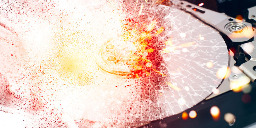Music industry’s 1990s hard drives, like all HDDs, are dying


arstechnica.com
My father told me he wanted to make USB flash drives of all the scanned and digitized family photos and other assorted letters and mementos. He planned to distribute them to all family members hoping that at least one set would survive. When I explained that they ought to be recipes to new media every N number of years or risk deteriorating or becoming unreadable (like a floppy disk when you have no floppy drive), he was genuinely shocked. He lost interest in the project that he’d thought was so bullet proof.
You are viewing a single comment
Probably M Disk as others have said for consumer use, but Microsoft is working on storing data in glass that could last for potentially 100,000 years +. Not that you’d ever likely have that in your home. Although, maybe by 2100 we will, who knows. https://www.microsoft.com/en-us/research/project/project-silica/
This is really the only way. Ironically not far off clay tabs just much much smaller.
Holographic storage is a fluff project, the resolution we'd need to match modern density is simply to narrow to be done optically. I mean it sounds fun but will never be practical
That’s just straight up factually incorrect. From the link: